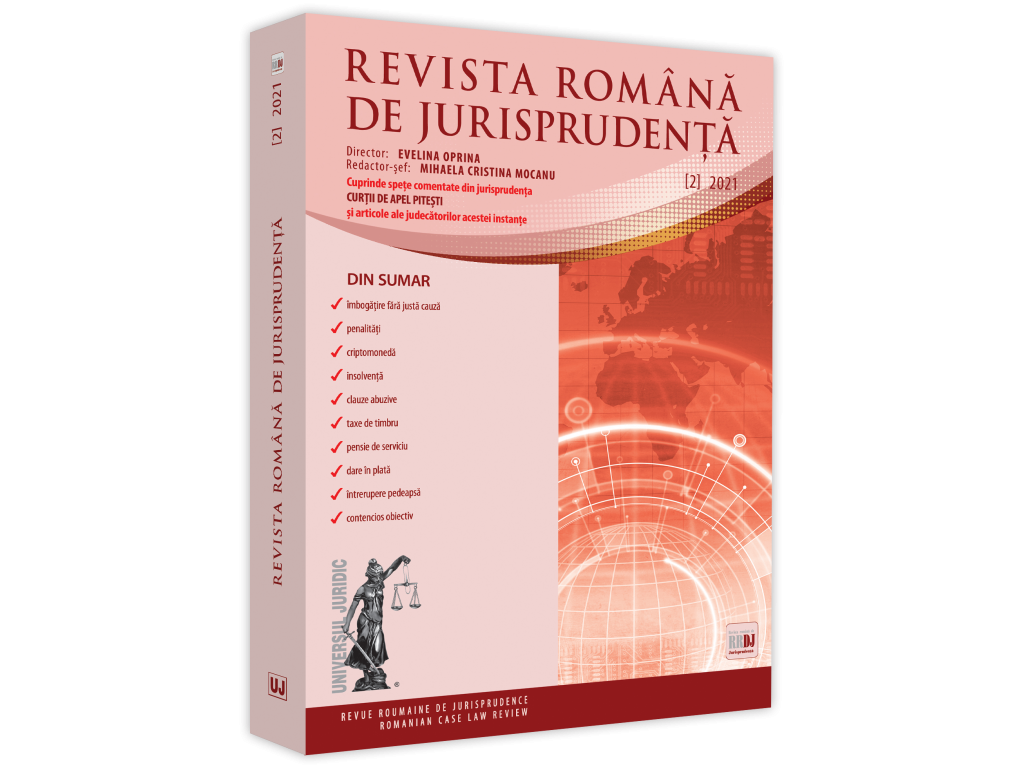Qualification of the nature of the appeal to enforcement in relation to all the grounds of illegality raised by the debtor. Obligation of the court hearing the appeal to enforcement to play an active role and to rule on all defences raised in the case
DREPT CIVIL ŞI PROCESUAL CIVIL
Abstract
It is true that the appellant, in its appeal, requested, in general terms, the annulment of all the acts and forms of enforcement in enforcement file No [...], but in application of the provisions of Article 129 para. 4 of the Code of Civil Procedure of 1865, the judge hearing the case had to ask the appellant to submit oral or written explanations of the enforcement acts which she intends to challenge, and to submit to the parties any factual or legal circumstances, even if they were not mentioned in the application or in the statement of defence, all the more so since, as the contested enforcement act, the debtor annexed to the statement of claim for a writ of summons the real estate summons no. [...]/14.10.2019 and the publication of sale No [...]/14.10.2019.
This is because according to Article 399 para. 1 of the Civil Procedure Code of 1865, against enforcement, as well as against any act of enforcement, an appeal may be lodged by those interested or injured by the enforcement. However, from a teleological interpretation of those legal provisions, it follows that an appeal to enforcement may be lodged not only against the enforcement itself, but also against any other act of enforcement, in the present case, it not being possible to disregard the acts of enforcement attached to the application initiating the proceedings and in relation to which the legal time-limit for lodging a challenge has not been infringed, as the appellant correctly pointed out.
The points raised by the respondent in its statement of defence, relating to the lack of any specific allegations of illegality by the respondent debtor against the real estate order no. [...]/14.10.2019 and the publication of sale no. [...]/14.10. 2019, does not relieve the court of the obligation to clarify and fix in concrete terms the subject-matter of the claim, in order to rule accordingly on all that has been requested, thus giving effect to its duty to take all legal steps to prevent any error in the ascertainment of the truth in the case, on the basis of the establishment of the factual situation and the correct application of the law, with a view to pronouncing a well-founded and lawful judgment.








